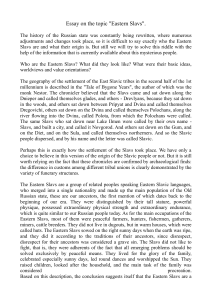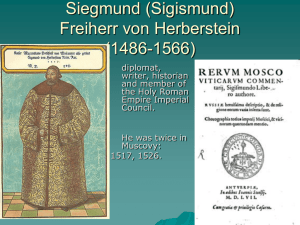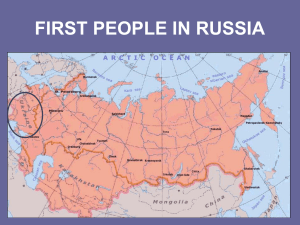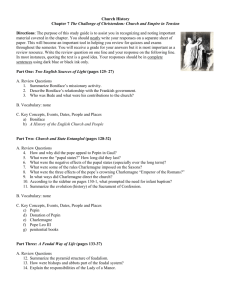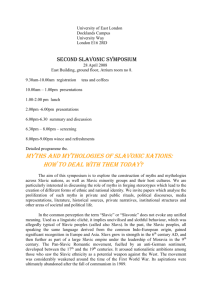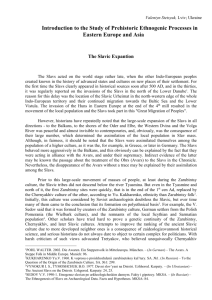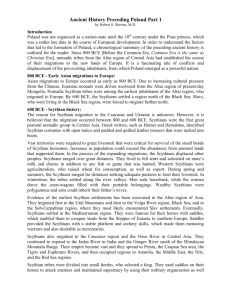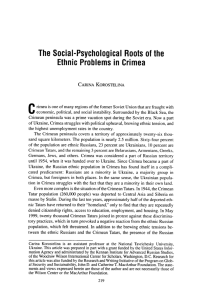The Slavs
advertisement
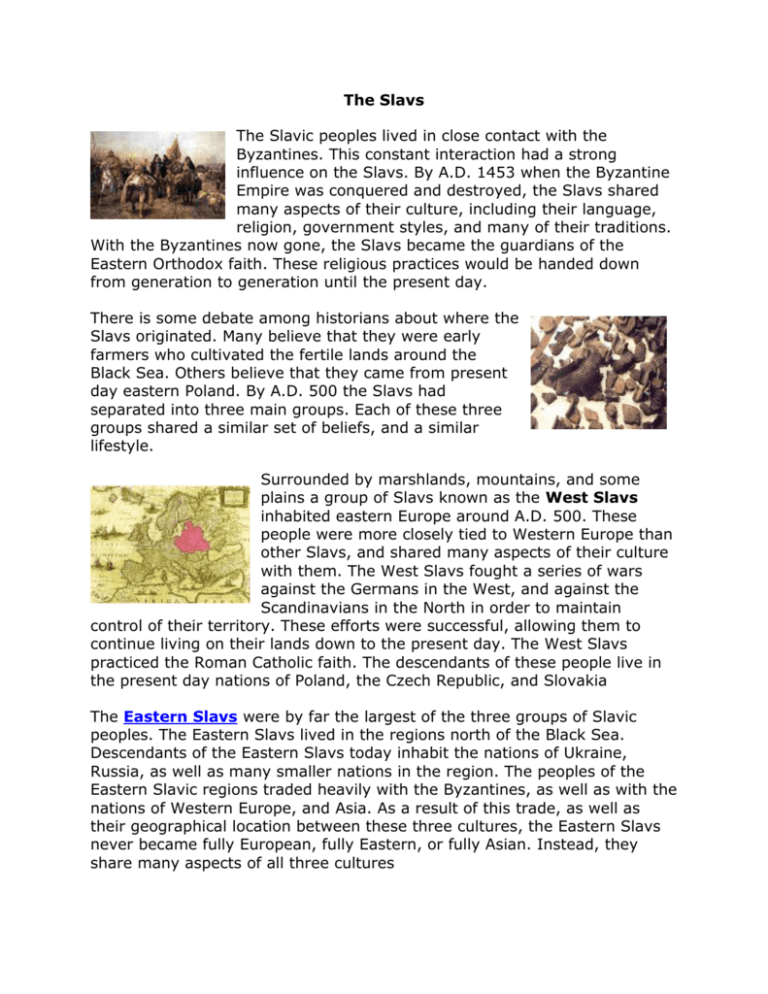
The Slavs The Slavic peoples lived in close contact with the Byzantines. This constant interaction had a strong influence on the Slavs. By A.D. 1453 when the Byzantine Empire was conquered and destroyed, the Slavs shared many aspects of their culture, including their language, religion, government styles, and many of their traditions. With the Byzantines now gone, the Slavs became the guardians of the Eastern Orthodox faith. These religious practices would be handed down from generation to generation until the present day. There is some debate among historians about where the Slavs originated. Many believe that they were early farmers who cultivated the fertile lands around the Black Sea. Others believe that they came from present day eastern Poland. By A.D. 500 the Slavs had separated into three main groups. Each of these three groups shared a similar set of beliefs, and a similar lifestyle. Surrounded by marshlands, mountains, and some plains a group of Slavs known as the West Slavs inhabited eastern Europe around A.D. 500. These people were more closely tied to Western Europe than other Slavs, and shared many aspects of their culture with them. The West Slavs fought a series of wars against the Germans in the West, and against the Scandinavians in the North in order to maintain control of their territory. These efforts were successful, allowing them to continue living on their lands down to the present day. The West Slavs practiced the Roman Catholic faith. The descendants of these people live in the present day nations of Poland, the Czech Republic, and Slovakia The Eastern Slavs were by far the largest of the three groups of Slavic peoples. The Eastern Slavs lived in the regions north of the Black Sea. Descendants of the Eastern Slavs today inhabit the nations of Ukraine, Russia, as well as many smaller nations in the region. The peoples of the Eastern Slavic regions traded heavily with the Byzantines, as well as with the nations of Western Europe, and Asia. As a result of this trade, as well as their geographical location between these three cultures, the Eastern Slavs never became fully European, fully Eastern, or fully Asian. Instead, they share many aspects of all three cultures The Slavic Lifestyle Slavs lived in small villages consisting mostly of relatives. They farmed the land, growing a variety of grains and vegetables. These peoples also hunted their thick woodlands for meat.Slavic villages were made up of beautifully built log homes. These log homes were skillfully carved with pictures of animals, flowers, and gods, and would be considered comfortable, even by today’s standards. The Slavs were generally a peaceful people, usually fighting only to maintain their lands, and not to expand them further. They often depended on outside armies such as the Vikings to help protect them. In A.D. 860 the Slavic village of Novgorod located in the Northern Forests of the Slavic regions contacted the Vikings asking for help in maintaining order in their lands. They said told the Vikings that they had rich fertile lands, but that they did not have the ability to unite their people, or maintain order. Thus, they requested that the Vikings come and rule them. A Viking by the name of Rurik The Rus answered the request. It is believed that Rus is the root for the name of the Slavic nation of Russia.
